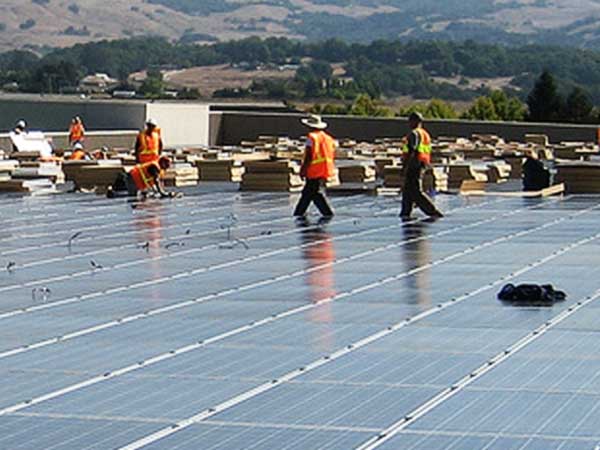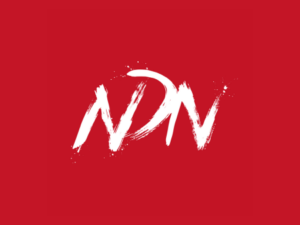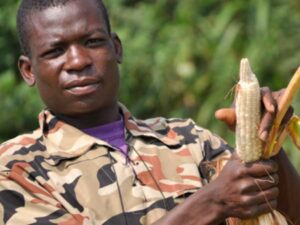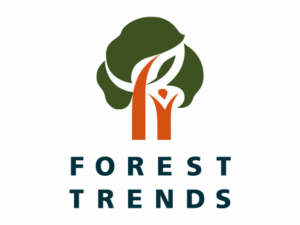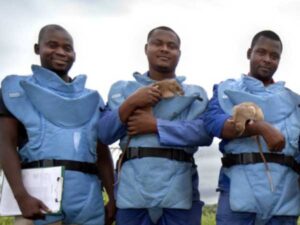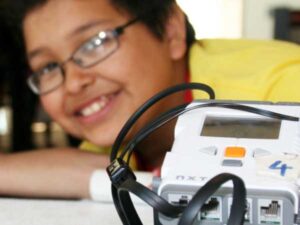The Bioregional Development Group provides sustainability consultancy services that help businesses, developers and local authorities respond to climate and ecological emergencies. OnePlanet is a digital platform that connects people across traditional siloes of departments, organizations, and sectors.
Pooran Desai of the Bioregional Development Group and OnePlanet spoke with Lissa Harris on January 11, 2024. Click here to read the full interview with insights highlighted.
Lissa Harris: Can you start by introducing yourself, your organization, and talking about the problem you’re tackling and how you are engaging with it?
Pooran Desai: My name Pooran Desai, and I am the founder of Oneplanet.com. It’s a digital platform and it builds on 35 years of work in sustainability. I think the problem we face is that we try and solve problems in silos. We often try to solve, say, a cost of living crisis or a poverty crisis in a way that makes something like climate worse. We lack the tools to create united, joined-up solutions. We tend to try and solve economic problems one way, climate problems another, and social problems a third. That’s why we are in a polycrisis. The way we work completely misunderstands the nature of reality. Modern Western culture has become deluded in how it thinks it can create healthy systems by solving one problem here, and another problem there. That’s absolutely not correct. We have to have united and cohesive solutions. When people say they’re working on social change, they have to work on the environment, as well.
We’re solving that problem by giving people a platform where they can work with interconnectedness. That’s what the platform does. It enables people to join the dots, collaborate, and see how they’re contributing to multiple shared outcomes, not just ticking boxes in any one particular silo.
Lissa Harris: Who is your target community? Who are you serving most directly with this platform, and how do you engage with them?
Pooran Desai: We are working across all sectors. We are linking local government to central government to businesses; corporations to citizens. We are connecting the dots across all the different sectors so they can collaborate and understand what each other is doing.
Lissa Harris: Can you talk a bit more about specific areas where this is coming to fruition and share some specific projects?
Pooran Desai: For example, we’re working with local governments in the UK — like Haringey County, London Borough — with portion district councils, as well as regional governments like national parks. We are helping them be more united. Most organizations, in particular governments and larger organizations, are not connected internally. You have different departments doing things that are in conflict with each other. For example, in a local government, the transport department might be doing something that is in conflict with what the sustainability department is trying to do, which is in conflict with what the economic development department is doing. Three themes in particular are coming up regarding the problems that local governments face: poverty, inequality around climate change, and inequality around health.
What we do, to start, is we link our customers internally, be it a local government, a business, or a community group. Anyone who wants to create change in their ecosystem can work with us. What we see happening is different departments are starting to understand, “We can’t do this because it undermines what another department is doing,” or “We could do this and support another department.” Once they link up internally, they start to connect externally to other community groups and businesses. They reach out to others. This leads us to become more connected as a whole society.
Lissa Harris: How do you acquire those relationships? How do you engage with those people who then become catalysts for bringing others on board?
Pooran Desai: They find us online — through our website, through webinars — or by word of mouth. People tell each other about us.
Lissa Harris: Is there something you can share that illustrates the impact of the work that you do? Is there a particular project that you’ve worked on that you can talk about?
Pooran Desai: Our system is a systems-thinking, joined-up action tool, and it’s very intuitive.
We’ve just finished a project training over one hundred young people in these systems. They’ve mapped 50 local governments and their climate plans, and those local governments are starting to integrate those climate plans across all their different departments.
We’re linking it to national strategies. We have launched a campaign that is getting lots of support now around establishing an office to build more connectedness within government because we are not joined up, and there’s no government that is coherent in its approach. They’ve got economic development, which is not aligned to climate, which is not aligned to social equity. So we’re creating an office to join up government departments, and we’re getting across the political spectrum. We’re getting support for this from large consultancies who’ve worked with both government and business, from large infrastructure companies, and from medical professionals. They’re all starting to realize, “We’ve got it completely wrong.”
For example, we spend huge amounts of money on our health services, but 80% of that could be avoided if we had healthy diets, healthy lifestyles, and a clean environment. Many doctors are saying, “We must not spend any more on the health service because we’re just treating disease; we’re not promoting health.” Promoting health is a very different practice from treating disease.
Almost all the money in the UK — and I think it’s even worse in the States — goes into medical practice, trying to cure cancers, trying to tackle heart disease, when in fact 90% of those diseases would not appear if people had healthy diets, healthy lifestyles, and a clean environment. That’s how delusional and out of touch with data our society is. My background is in neuroscience, and from that perspective, I would say we’ve developed the wrong part of our brain, the part that sees the world in parts and cannot see the interconnectedness of things.
Lissa Harris: What outcomes are you seeing from this particular project?
Pooran Desai: We’re starting to see much higher levels of collaboration and understanding. When we’re stuck in our silos, we often get angry because we are disempowered, because we see other people doing things that we don’t want them to do. When we start art unlocking a different part of the brain, people start to see opportunities to collaborate. It gets rid of the anger. We’ve become a very angry society. Neuroscientifically, that’s because we are stuck in the logical or reductionist part of our brain.
Lissa Harris: What makes your approach different from that of other organizations working in a similar problem space, or with a similar philosophy?
Pooran Desai: We’ve gone deeper than anyone else in this space, and when you go very deep, it gets very simple. Take, for example, the UN SDGs [United Nations Sustainable Development Goals], which are the globally recognized sustainable development goals adopted by all. I created the framework on which that was based, and it was by going very deep into looking at the minimum we need to do to tackle this problem, not the most we can do. What’s the least we can do to tackle this problem? What’s the simplest communication we can build around this?
There are so many sustainability frameworks, so many ESG [environmental, social, and governance] frameworks that are not very good. They mystify things. They’re often based on different sectors of different frameworks, and they’re just ticking boxes. No one talks to each other, and the whole system we’ve got is getting jammed up. It’s getting harder to make progress now because we are so confused by the details that we cannot see the big picture. We have to see the big picture, see where we can go by unlocking imagination, and of course, use detail where it’s needed. But if we rely on the detail, and assume that if we look at the detail we can understand the big picture, we are deluding ourselves. That’s a delusion of modern society and of most consultants in our society.
Lissa Harris: Can you talk about teachable lessons, or share some practical advice that can be taken from your work that others working in the field could apply?
Pooran Desai: Look for the simplest possible solutions, which deliver multiple outcomes. Create joined-up solutions.
For example, we look at things like electric cars as a solution to transport, so we require huge amounts of materials for it. We carry on building roads, but we don’t help people establish active lifestyles. Electric cars deliver one benefit, which is reducing carbon, but they don’t deliver 10 benefits. However, if we create completely car-free cities, we get multiple benefits. We get benefits to health, to community, and to air quality, as well as a reduction in microplastics because the biggest source of microplastic pollution is car tires. You get as many microplastics from electric car tires as from non-electric car tires.
The UK’s largest car-free development has multiple health benefits and multiple community benefits, and it was cheaper to build. We often think that creating a better future is about doing more, but often, creating a better future is about doing less. What’s the least you can do? Most people are rushing around trying to save carbon, but the best thing you can do is just sit down and do nothing. That’s the best way of saving carbon.
Lissa Harris: Can you talk more about how the car-free development came to be, and how that project played out? How did you work with people to make that happen?
Pooran Desai: We were called in by a local community in Brighton who wanted to oppose one development and propose a different development. We set up a company, proposed a project, got investment from the London Stock Market, and partnered with one of the largest UK household companies to deliver it. The total development was about 1500 homes, and we purchased the last bit of it and built about 200 homes. Our section is completely car-free and runs completely on renewable energy.
Lissa Harris: Could this idea be a replicable project or an inspiration?
Pooran Desai: Yes, absolutely. I put together the world’s first zero-carbon urban village development called BedZED, which used 20,000 square feet of community and commercial space. From there, I created the framework called One Planet Living, through which we applied 30 billion US dollars to zero-carbon development around the world. We used that framework for the London Olympics, it formed the basis of the UN SDGs, and we even extended it to Disneyland Paris and established a 15-year engagement using that framework. It’s a very inspiring story, and it was all about how health is interconnected with biomed is interconnected with economy. It was all about telling a very simple, joined-up story.
Lissa Harris: Is there something you can talk about that didn’t work for you, that taught you an important lesson?
Pooran Desai: One big lesson I’ve learned is that, over the last 15 years, we’ve become obsessed with measurement. We’ve become obsessed with evidence, and we spend more time gathering evidence than imagining what good solutions might look like. You can never create the future from evidence because evidence is always looking at the past. You can be informed by evidence, but you should never rely on evidence to create the future. You should never be data-driven. You should be data-informed, but you have to use imagination. Imagination goes way beyond numbers and way beyond evidence. This obsession with measurement has made it harder to execute sustainability projects because everyone is talking about the measurement, not about what to do.
Another thing I’ve learned is don’t trust experts. You can’t rely on experts for joined-up solutions. You need them to get out of their specialist space. For example, sometimes we rely too heavily on engineers for answers. Engineers understand and determine how buildings are designed from a heating and ventilation perspective, but they generally don’t have an understanding of the complexities of human behavior. They look at machines, they may view the world as a machine, but living organisms are not machines. One of the big mistakes we’ve made is listening to experts and specialists, without getting them out of their specialist space to see the bigger picture.
For example, we were involved in creating Masdar City in Abu Dhabi, which is a new city for 50,000 people run completely on renewable energy. We created the original sustainability plan, which was very simple, but then the big consultancies like PWC and Deloitte all piled in with their experts and made a mess of it.
Lissa Harris: What would you do differently now?
Pooran Desai: Not use big consultants, and not rely on the supposed expertise of experts in specialist areas. They’re thinking tends to be far too narrow to create joined-up solutions. Instead, I’d use more local knowledge, unlock imagination, and tap into the wisdom of people collectively.
Lissa Harris: Can you talk a bit about how you and your organization are working to advance systems-level change?
Pooran Desai: I’d like to offer a quote here from Buckminster Fuller, a thinker and architect. He said, “Don’t try and teach people a different way of thinking. Just give them a tool, the use of which will lead to different ways of thinking.” What we have is a very simple, intuitive tool that helps people see the big picture, work on the details, and then see the big picture again. I think we have created the only intuitive systems-thinking, joined-up tool out there. It’s taken us six years to build, and it’s just starting to take off.
Lissa Harris: How does this tool work? How do people interact with it?
Pooran Desai: We can take any project plan or strategy project and break it down into its atomic structure of outcomes: what you want to achieve, indicators, actions, what you’re going to do to achieve those outcomes, what you might track. Then you can see how they fit together, like a mind map. You can connect any number of these mind maps together into an ecosystem, so you can collaborate not just within your own organization or your own department, but with other departments and other organizations. Our tool enables us to unlock the imagination we need to solve the complex, interconnected problems that we have.
Lissa Harris: What do you think is most needed from other actors, partners, and collaborators to advance systems-level change?
Pooran Desai: It’s to realize they can’t do it in silence, and they can’t focus only on say, poverty alleviation. You’ve got to focus on poverty alleviation in a way that regenerates the living systems on which we depend. This realization is happening more and more, but I think the biggest problem is still focus.
Lissa Harris: How do you see your work evolving over the next five years?
Pooran Desai: We’re going to save our users lots of money by doing less, and we’re going to create better outcomes by doing less. We’re going to cut out a lot of pointless activity that we’ve got in our economy.
We’re creating a recommendation engine at the moment where our ultimate goal is to create a system that enables people to self-actualize and become the healthiest, happiest person they can be in a way that is good for their community and good for the planet. We call it a collective self-actualization platform.
Lissa Harris: Is there anything we didn’t cover that you think is important to add or to expand on?
Pooran Desai: We don’t study metaphysics enough. We don’t study philosophy. We are very reductionist. Our whole scientific paradigm is reductionist and it’s totally out of touch with reality. The way we do scientific experiments, we misinterpret the results of scientific experiments.
What we are trying to do is beyond words and numbers. We are getting people to experience the world differently through our digital platform, in a way that is more connected to reality and disconnected from Excel spreadsheets.
Click here to read the full interview with insights highlighted.
Lissa Harris is a freelance reporter and science writer (MIT ’08) based in the Catskills of upstate New York. She currently writes about climate, energy, and environment issues from a local perspective for the Albany Times Union, her own Substack newsletter, and various other digital and print publications.
* This interview has been edited and condensed.

